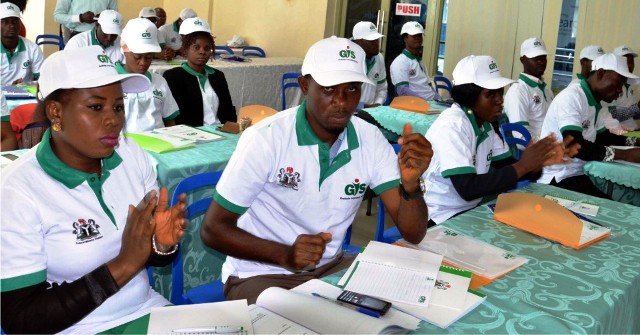Business
Bakers Task FG On Cost Of Bread Production

Bakers in Nigeria have appealed to the Federal Government to urgently intervene in the rising cost of bread production just as they ruled out going on strike.
Speaking to newsmen in Ibadan on Sunday, Chief Bayo Folarin, the National President of the Association of Master Bakers of Nigeria (AMBCN) said that the situation might soon send the commodity into extinction.
“May be in the nearest future, loaves of bread may go off the streets of Nigeria if the cost of its production continues to rise unabated,” he said.
Folarin, who doubles as the Chairman, Board of Trustees (BOT) of the association, said that government needed to intervene fast in stemming the current slide in the exchange rate of the naira.
He said that move was necessary because all the raw materials for baking, except firewood were imported.
”The Baking Industry in Nigeria is adversely affected by the current crash of the naira in relation with the U.S. dollar and this has made the venture unprofitable to members of the association.
“We are, therefore, appealing to the Federal Government to intervene in the fortunes of the naira against the dollars so that the exchange rate can be favourable to bakers,” he said.
According to him, the price of these raw materials, which include wheat flour, sugar, salt, margarine, edible oil and yeast, are soaring at an astronomical rate.
“For instance, as at December 2015, a bag of flour which was N6,500 now goes for N10, 500.
“Also, a bag of sugar, which sold for N10, 500 in January is now N15, 000 in the South West, while it is being sold for N17, 000 in the East and the North.
“Ditto, a carton of yeast formerly sold for N11, 000 now goes for N16, 000,” he said.
The ABMCN boss expressed worries over the development, adding that the association’s appeal to millers and those involved in the trade had yielded no result.
He said that they had hinged their being adamant on the increased prices of production materials.
The number one baker in Nigeria, who ruled out the possibility of his members going on strike, said that “they will go on strike as employers’’, stressing that a stop in production would render workers jobless.
He, however, appealed to the business mogul, Alhaji Aliko Dangote, to allow bakers access direct buying of salt and sugar by crashing the prices.
“He has done it before and he can still do it,” he said.
Folarin, who lamented the development, said, “We don’t want to embark on a strike because we are employers, but we can withdraw our services if things don’t change for the better.”
Business
NCDMB, Jake Riley Empower 250 Youths On Vocational Skills

Business
NUJ Partners RSIRS On New Tax Law Education

Transport
Nigeria Rates 7th For Visa Application To France —–Schengen Visa

-

 News13 hours ago
News13 hours agoNLC Threatens Nationwide Protest Over Electoral Act Amendment
-

 Maritime10 hours ago
Maritime10 hours agoCustoms Hands Over Seized Cannabis Worths N4.7bn To NDLEA
-

 Maritime11 hours ago
Maritime11 hours agoOver 6,223 Seafarers Abandoned In 2025 – Says ITF
-

 Politics10 hours ago
Politics10 hours agoI DEFECTED OUT OF CONVICTION …NO ONE COULD’VE IMPEACHED MY LATE DEPUTY ~ DIRI
-

 News13 hours ago
News13 hours agoTinubu Embarks On Two-Day State Visit To UK, March 18
-

 Politics10 hours ago
Politics10 hours agoWe’ve Not Recognized Any PDP Faction — INEC
-

 Environment8 hours ago
Environment8 hours agoRivers State Government Suspend Fire Service Collection Levies
-

 Education10 hours ago
Education10 hours agoFG commends FUET over historic beginning as VC lament over poor funding

